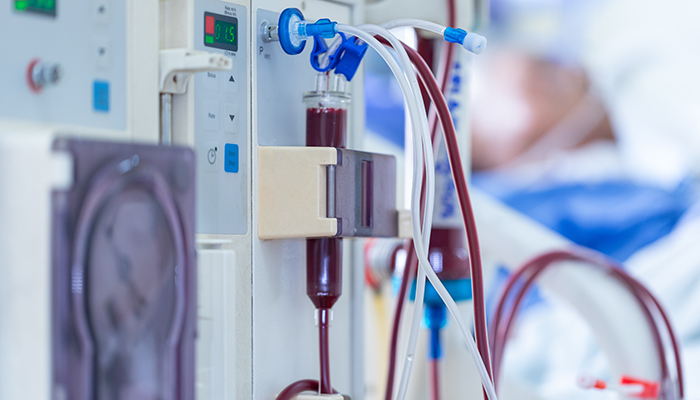
If the person you care for has chronic or advanced kidney disease, dialysis will come up as a treatment option. This procedure mimics the cleansing function of the kidneys. It mechanically “rinses” the blood to take out toxins.
Dialysis is not a cure for kidney disease. But it does buy some time. People often live for years on dialysis. The treatment is quite intrusive, however. Permanent access into the body must be created. There are food restrictions and medications. Plus, your loved one must live by a strict dialysis schedule. There are many side effects to manage. And dialysis will rely heavily on the assistance of family members.
Some forms of dialysis may be completed at home. Others require travel to a facility. Home-based treatments allow for more flexibility of scheduling and a more normal life. There may be fewer food restrictions. And your loved one may feel better for a longer period of time. Home-based treatments require extreme self-discipline. Ongoing help and training of family or friends is critical.
Facility-based treatments typically occur three times a week. Each visit lasts for about four hours. Some patients enjoy socializing with others receiving treatment. Another bonus is regular check-ins with a specialist. On the down side, your relative will need transportation both ways. And recovery time afterward. Plus, they will have a period of declining energy before the next scheduled session.
All types of dialysis are expensive. Original Medicare pays for 80%. Check your loved one’s insurance to verify what other coverage is available for supplies, equipment, and services.
Before kidney disease becomes advanced, talk with the doctor about options. You may want to explore medical management without dialysis. Talk as a family about the daily impact of the disease, treatments, and side effects on all of you. What is the quality of life with dialysis? Without?



